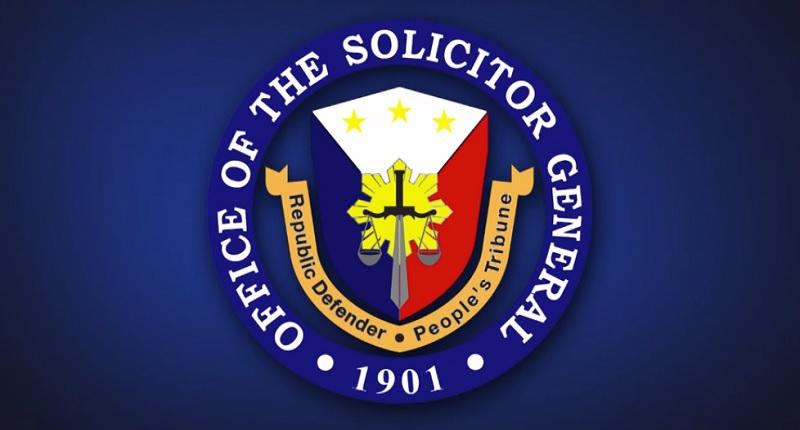OSG asks Supreme Court to dismiss petitions against anti-terror act

As the openly criticized Anti-Terrorism Act took effect on Saturday, the Office of the Solicitor General requested the Supreme Court to dismiss motions assailing the new law for a supposed "utter lack of merit."
In a statement, the OSG said that the petitions against the act relied "primarily on baseless allegations of vagueness of the law, unjustified fears of abuse, and imagined conjectures."
Several groups and individuals have expressed concern that the measure could be abused, and used by authorities to go after activists or dissenters for mere suspicion that they are terrorists.
Among those who oppose the new law is Vice President Leni Robredo, who earlier urged concerned citizens to go to the Supreme Court to question the the law's constitutionality.
Bone of contention
Prior to the signing of the measure into law, over 250 groups from different sectors had appealed for Duterte's veto, particularly questioning Section 29.
The updated section is titled "Detention without judicial warrant of arrest." It authorizes the Anti-Terror Council –composed of appointed officials – to order the arrest and detention of "suspected terrorists" and not a court of law.
Likewise, the section allows suspected terrorists to be arrested and detained without a court's warrant for up to 24 days.
But the opposition argued that the 1987 Constitution provides that those arrested without a warrant must be charged within three days, otherwise the suspects must be freed.
Section 29, including the the timing of the law's passage, has also been questioned by several groups across different sectors across the country – business, academe, lawyers, including retired Supreme Court senior associate justice Antonio Carpio, and United Nations Human Rights chief Michelle Bachelet.
Deny TRO
In a consolidated comment, the OSG also requested the high court to deny petitioners' prayer for the issuance of a temporary restraining order (TRO) and the writ of preliminary injunction.
According to the OSG, "petitioners do not possess a clear and unmistakable right which will be violated by the passage of the Anti-Terrorism Act."
"Through this Comment, the OSG likewise wishes to allay the fears of some members of society, and to remind them that the Government should not be perceived as the enemy, but rather as a guardian in safeguarding the Filipino People, and ensuring the enjoyment of all of our constitutionally guaranteed freedoms," the OSG said.
Likewise, it stressed that the Act is to "protect life, liberty, and property" from terrorism and "to condemn terrorism as inimical and dangerous to national security of the country and to the welfare of the people."
"This stems from the general duty of all States to protect individuals under their jurisdiction against interference in the enjoyment of their human rights," it said, adding that "the enactment of this law, specifically, is part of the Philippines’ obligation to ensure respect for the right to life and the right to security."
"The Anti-Terrorism Act is needed to fight the continuous and aggressive security threats brought about by terrorism," the OSG said.
On the other hand, National Security Adviser Secretary Hermogenes Esperon Jr. had assured the public that "law-abiding citizens" should not worry about the act. Despite this, Esperon later said that critics of the law could be "supporters" of terrorists. —LBG, GMA News



